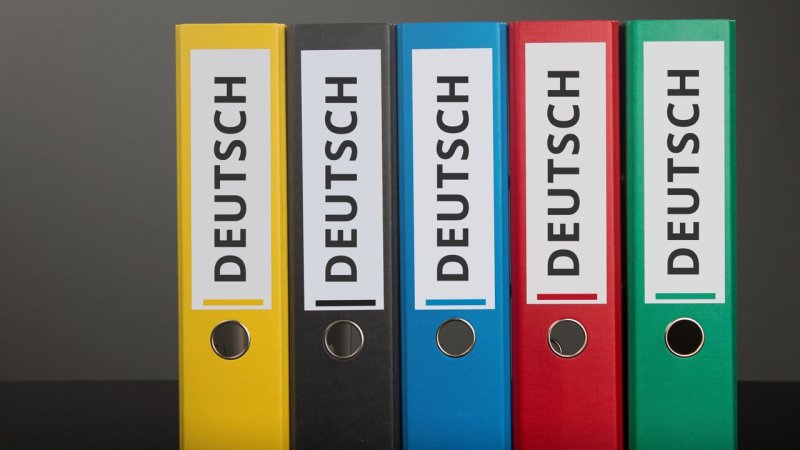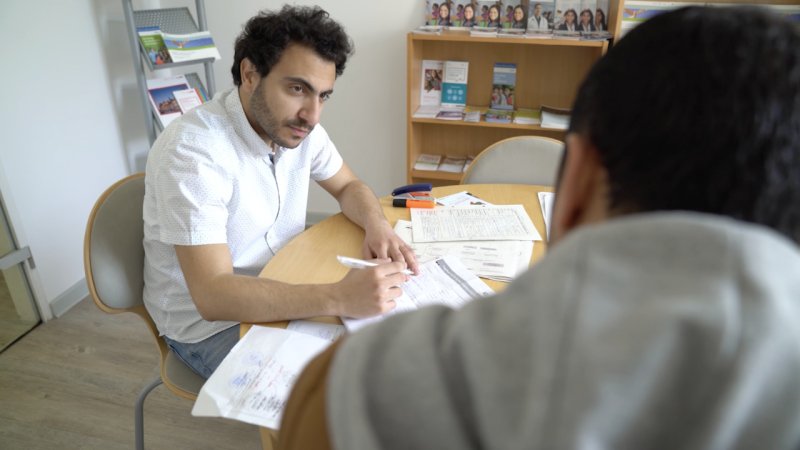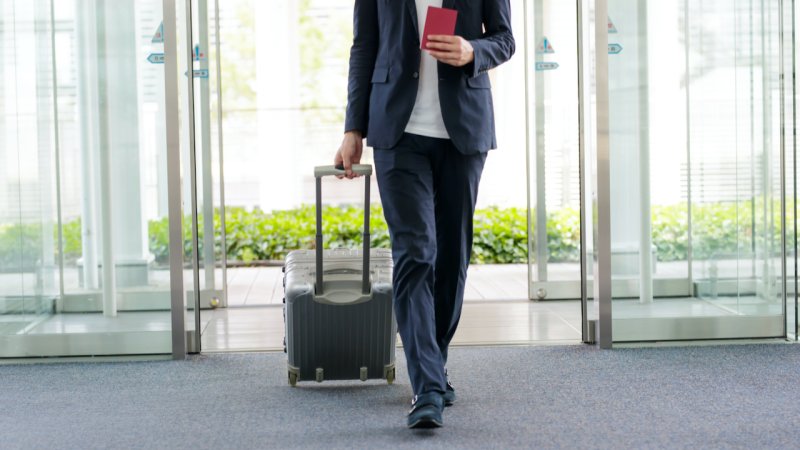Certified Copies
You have most probably heard the term "certified copy" ("beglaubigte Kopie") or the phrase "you need to have your documents/certificates authenticated" in Germany. In particular, when applying at university or the Civil Registry Office ("Standesamt"), you are required to submit a certified copy of your diplomas or documents. Here you can learn what a certified copy is and how you can make a certified copy of your documents.
German for Work
If you would like to continue learning German after the integration course (or any other German course), you may be able to participate in and benefit from an occupational language course. These courses are known as "Deutsch für den Beruf" or "berufsbezogene Deutschsprachförderung". A work-related German course can provide you with the opportunity to gain a foothold in the German job market and improve your qualifications.
How do I find out what is the right job for me?
As a child, when we were asked "What do you want to be when you grow up?" we surely had some answers ready. Later, this question is often not so easy to answer. There are many different professions, and not many are able to choose a specific vocational training or university degree without having to face hurdles. That's why the Employment Agency has put together lots of informational contents and developed various tools to help you choose a career path.
Internship
Doing an internship helps you to gain work experience and can considerably improve your job opportunities. In many schools and universities, the students are expected to take part in a compulsory internship during their studies. Here you will learn about your rights as an intern, the benefits of doing an internship, and the crucial issues you need to consider before starting your internship.
Job Hunting and Application
The job market in Germany has numerous rules and regulations. In addition, you must meet some requirements to get a job. Many employers choose their employees mainly based on their certificates or degrees in the desired field. But even without the relevant certificates, you still have a chance to find a job.
Here you will learn about the steps you need to take to start your first job in Germany and the ways you can increase your chances of finding your dream job.
Here are two essential points you need to consider in advance:
- German is spoken in most companies in Germany. In some cases, English will do; but for most jobs, you need to be able to communicate in German. There are many ways to learn German or to improve your proficiency. Find out more in our chapters on "Language".
- You need a work permit before you can start to work in Germany. For migrants, the work permit is directly linked to the residence permit. You can find out more about this in our chapter "Migration to Germany". If you have fled to Germany, whether you can work or not depends on your current residence status. You can find out more in our chapter "Work Permit for Refugees".
Recognition of foreign certificates
If you have obtained your school or vocational qualification outside Germany, you can have it recognised here. Unlike vocational qualifications, your university/school qualifications may already be recognised: you can check the official portal Anabin to see whether your school, university, and degree are listed as recognised. You can read more about this in ‘How can I find out whether my qualification is categorically recognised?‘
In the recognition process, your degree is compared with a similar German degree. When your qualification is verified as an equivalent to the corresponding German degree, your diploma is "recognised", and you will have better chances in the job market.
All people with foreign qualifications have the right to this recognition process- it does not matter what residence status or nationality you have.
Please note: People who are still abroad sometimes have to provide relevant documents (e.g., training place, job offer) to prove that they intend to pursue vocational training or employment in Germany. If that is the case, you can also have your professional qualifications recognised in Germany.
*This information page has been updated with the support of the IQ Network NRW.
Support for Jobseekers
Finding a job or vocational training programme in a new country is far from easy. However, you can benefit from various support offers from the Jobcenter and Employment Agency during your search in the German job market. These programmes can, for instance, help you search for a job, prepare your job application or provide you with a voucher for a preparatory training course to improve your chances in the job market.
In this chapter, you will learn about the types of support available and how you can seek help.
Visa and residence permit for the recognition of professional qualifications
Recognition of foreign qualifications enables those who have completed their training abroad to work in their profession in Germany. The recognition process takes place at the so-called "recognition offices "("Anerkennungsstelle"). However, foreign qualifications occasionally do not meet all the necessary criteria for full recognition. When that is the case, you can attend a qualification programme in Germany, such as a technical training course or a job-related German course. To participate in qualification programmes in Germany, you need a corresponding entry visa and must later apply for a residence permit in accordance with §16d Residence Act in Germany.
Good to know: If you would like to have your qualifications recognised in order to work in Germany, you can also apply for a residence permit in accordance with Section 16d (3) Residence Act. To do so, you must prove the job in question is a qualified job. (There are individual exceptions or exemptions for church work or care-related professions).
You can also obtain a residence permit if you wish to undergo a so-called “Qualifikationsanalyse” (qualification analysis) or take part in an examination in Germany. This type of residence permit is issued for a maximum of 6 months. You will usually also need A2 (CEFR) language skills, depending on your qualifications. In addition, you must be able to prove that you have already been invited to a ‘qualification analysis’.
Visa for Jobseekers
Many companies in Germany are looking for skilled workers. With a sought-after professional qualification, you can come to Germany to work and live here. But finding a job from abroad is often a challenge. That is why according to section 20 of the Residence Act, you can obtain a visa or a residence permit for job hunting in Germany. This way, you can enter Germany legally and then look for a suitable job on-site.
Work Permit for Refugees
You need a work permit before you can start to work in Germany. And whether you would be issued a work permit depends on your residence permit. Here you can learn more about the regulations which apply to you when it comes to obtaining a work permit in Germany.
If you are not a refugee, you can visit our chapter “Immigration to Germany” to learn when and how you can apply for a work permit and enter the German job market.
“Opportunity Card” for Jobseekers
“Chancenkarte” or the Opportunity Card (as per §20a, b Residence Act) will be available from June 2024. Qualified professionals will thus have the opportunity to obtain a stay permit to look for a job in Germany. To obtain an Opportunity Card, you must meet certain requirements. Below, you can find what you need to consider.
*This information on this page has been reviewed and verified by our consulting lawyer Astrid Meyerhöfer.










